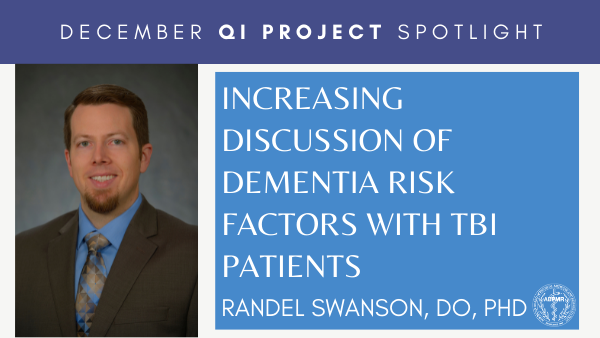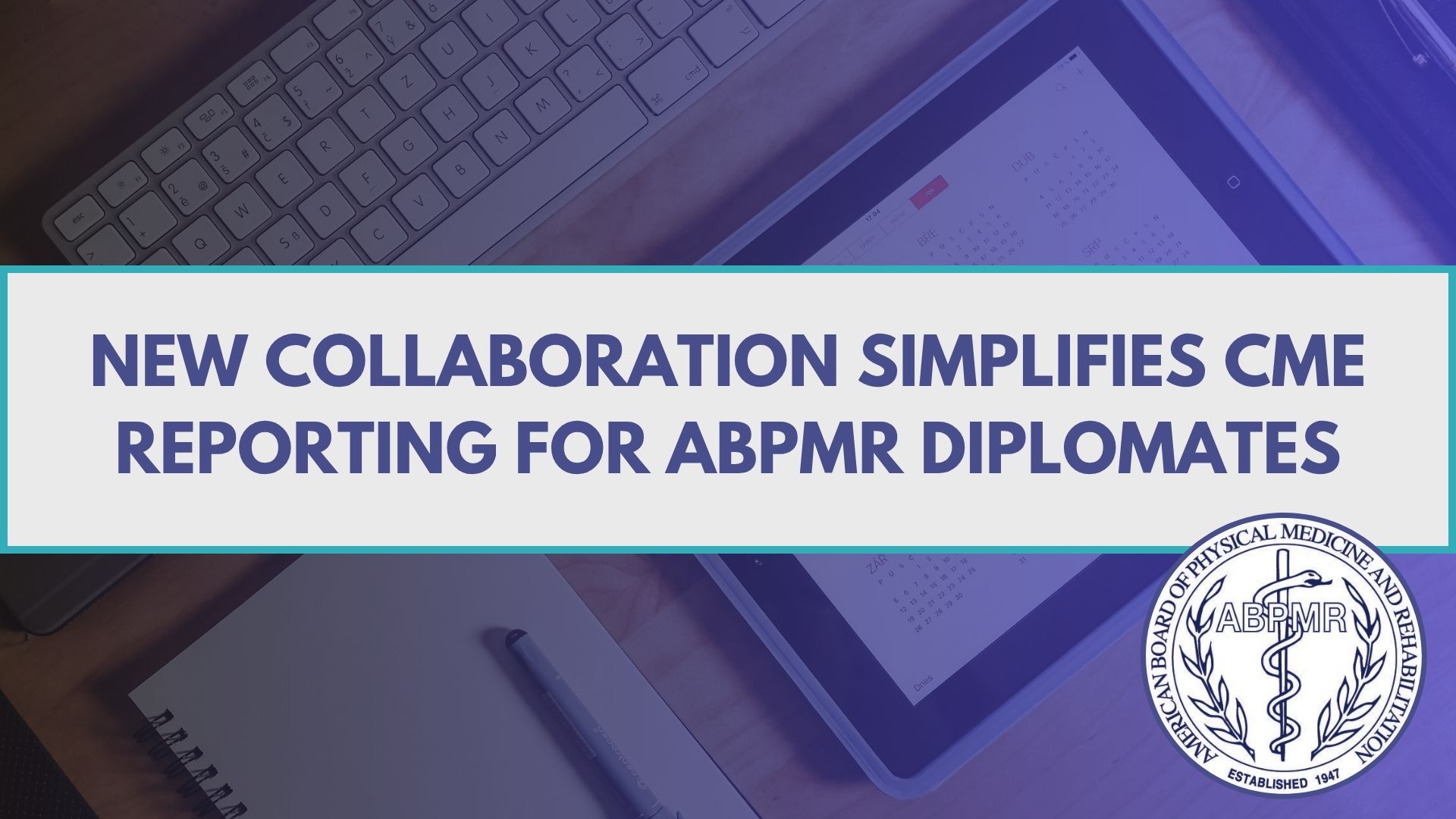CC
QI Spotlight: Increasing Discussion of Dementia Risk Factors with TBI Patients

The December QI Project Spotlight feature was submitted by Randel Swanson, DO, PhD. Dr. Swanson currently practices in Philadelphia, focusing on Neurological Rehabilitation of patients with Acquired Brain Injury at Penn Medicine and Corporal Michael J. Crescenz VA Medical Center.
Dr. Swanson and his team identified modifiable cardiovascular risk factors (mCVRF) which lead to a high risk of dementia in traumatic brain injury (TBI) patients. After discovering these risk factors were only discussed in 28% of patient encounters at his practice, Dr. Swanson began his project with the goal of increasing these discussions with patients. At the end of his project, Dr. Swanson and his team surpassed their original goal of having these discussions in 50% of patient encounters; Dr. Swanson is now working with a resident physician on a survey study within this patient population to assess their understanding regarding the importance of mCVRF optimization.
Thank you for submitting your project, Dr. Swanson!
The QI Project Spotlight (formerly the PIP Spotlight) is a periodic feature on the ABPMR News Center to highlight exemplary Quality Improvement projects submitted by your fellow diplomates (or residents) for continuing certification (CC) credit. Diplomates can use the QI Project Spotlight as a tool to plan their own QIs or as a way to connect with other diplomates doing similar work.

What is the problem you are trying to solve?
I subspecialize in Brain Injury Medicine. It is increasingly recognized that a history of traumatic brain injury (TBI) exposure increases a person's relative risk for developing age-related cognitive decline or dementia. However, the best available balance of evidence shows that while TBI exposure contributes some added risk of developing dementia, there are numerous other modifiable risk factors which lead to much more risk. Specifically, modifiable cardiovascular risk factors (mCVRF), which drive atherosclerosis and cerebral microvascular pathology. Thus, I am trying to increase the frequency with which myself and my residents/TBI fellows discuss mCVRFs with our patients who have suffered a TBI exposure.
What data (objective measurements) do you have that supports this as a problem?
I mined the clinical records from my TBI/Polytrauma clinic over a 10- week period of time and noted that mCVRFs were only assessed in 28% of patient encounters in that time period.
What is your opportunity statement? State the goal you hope to achieve.
I aimed to change my new patient and follow-up patient progress note templates to auto-populate relevant mCVRF's to increase the percentage of time mCVRF's are discussed with the patient during a clinical encounter. I aim to incorporate this change into the resident/fellow physician templates, and to educate the trainees on the importance of assessing mCVRF's in our TBI survivor population.
What is the underlying cause of the performance/quality problem?
I believe the underlying cause of mCVRF's only being discussed ~25% of the time during clinical encounters is that objective measures are not conveniently located in the medical progress note, and therefore get overlooked during a busy clinical encounter.

What change(s) did you implement?
I modified both my new patient and follow-up patient templates for patients with TBI exposure. The modification had a new section which automatically brought in the following mCVRF's: BMI, BP, HgbA1C, CRP, and complete Lipid profile. I further distributed these new templates to the residents/TBI fellow rotating in my clinic. These new templates were implemented in the middle of July 2020. My goal was to increase the frequency with which we assess mCVRF's during TBI-related encounters by 50% or more. I then retrospectively looked at the percentage of encounters where mCVRF's were assessed over the next 12 weeks, as compared to the 10 weeks prior to the implementation of these new templates.

Did you achieve your goal or target from your opportunity statement? What data do you have to support your conclusion?
Yes. From 5/4/2020 until 7/10/2020, mCVRFs were assessed in 28% of clinical encounters in my TBI/Polytrauma clinic. The new template was implemented the week of 7/13/2020. Over the next 12 weeks (7/13/2020 - 9/30/2020), mCVRF assessment increased to 82% of all encounters.

Will you continue with the changes you have implemented?
Yes, I met my goal. I further maintained this over the remaining academic year, providing each new resident on service with the new templates. I also gave a dedicated lecture to all residents in our program about the importance of assessing mCVRFs in TBI survivors for long-term brain health. Further, I am working with a resident physician on a survey study within this patient population to assess their understanding regarding the importance of mCVRF optimization, and to assess the best strategy to encourage or empower the patient to implement recommended changes.



